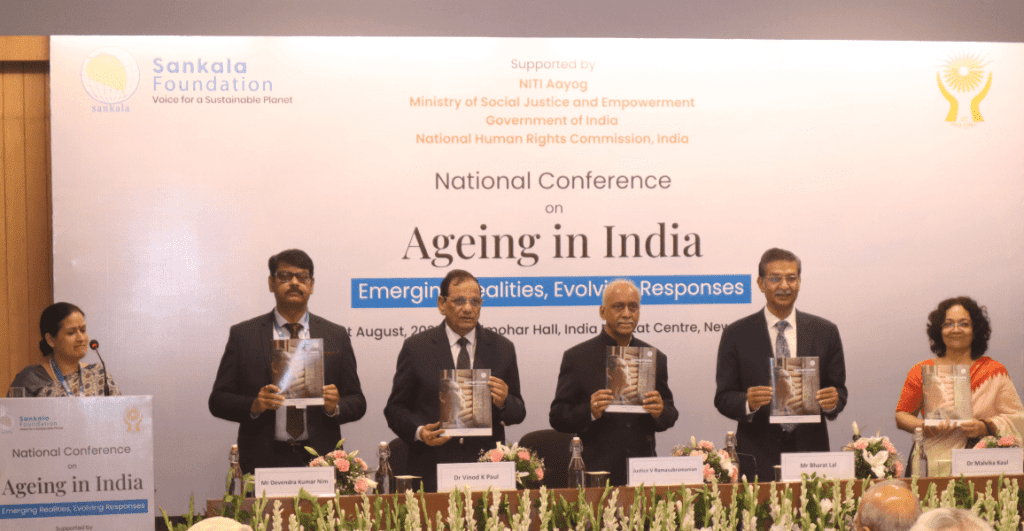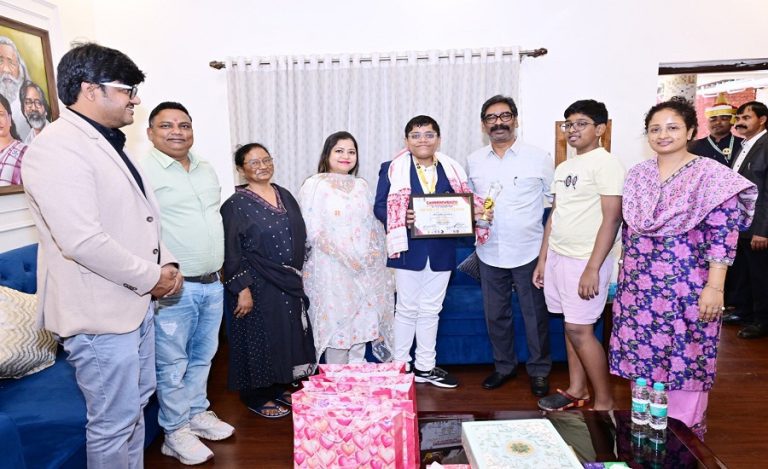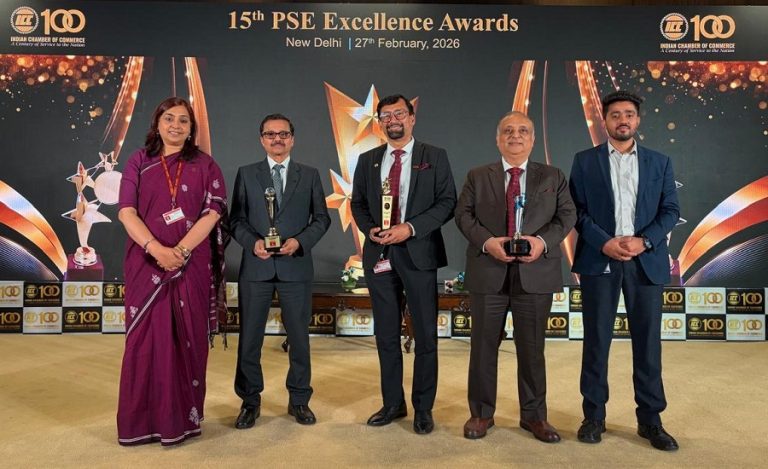The Sankala Foundation, in collaboration with NITI Aayog, the Ministry of Social Justice & Empowerment, and the National Human Rights Commission, released its comprehensive status report titled “Ageing in India: Challenges and Opportunities” at a national conference held in the capital on August 1st, 2025.
The report highlights the urgent need to address the multifaceted challenges posed by a rapidly ageing population in India and across the globe. As part of a global demographic transition marked by longer life expectancies and falling fertility rates, the world is projected to witness a surge in the elderly population, reaching 2.1 billion by 2050, or 21.1% of the global population.
India is emerging as a major focal point in this demographic shift. In 2022, the country had 149 million citizens aged 60 and above. That number is expected to more than double to 347 million by 2050, constituting 20.8% of the total population. Southern states like Kerala, Goa, and Tamil Nadu already report some of the highest old-age dependency ratios in the country.
Despite this growing elderly demographic, India’s senior citizens face deep-rooted challenges, including:
- Low literacy levels
- High economic dependency
- Limited financial security
- Increased prevalence of chronic illnesses such as hypertension, diabetes, and cognitive decline
What the Report Covers
The Sankala Foundation Status Report provides:
- A detailed overview of global and Indian ageing trends
- Economic, health, and social implications of ageing in the Indian context
- A review of existing constitutional, legal, and policy frameworks
- Evaluation of current government initiatives, like the Integrated Programme for Older Persons and the National Policy on Older Persons
- Expert recommendations for fostering an inclusive, age-friendly society
The report is grounded in data from the Longitudinal Ageing Study in India (LASI, Wave 1) and incorporates insights from the National Seminar on ‘Ageing in India: Actionable Solutions’ held in December 2024. That seminar brought together stakeholders from across the policy, academic, and healthcare domains to identify pressing policy gaps and chart out a roadmap for the future.
A Call for Action
Speaking at the event, Sankala Foundation representatives emphasised the importance of timely, targeted interventions to protect the rights, dignity, and well-being of India’s ageing population. “Ageing must not be seen merely as a health issue. It is a social, economic, and rights-based challenge that requires multi-sectoral collaboration and sustained political will,” said one of the speakers.
With India’s elderly population set to become one of the largest in the world, the report serves as a crucial call to action for governments, civil society, and the private sector alike.
Full report can be accessed at… https://sankala.org/ageing-in-india-challenges-and-opportunities/






























